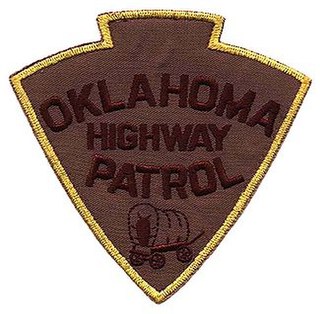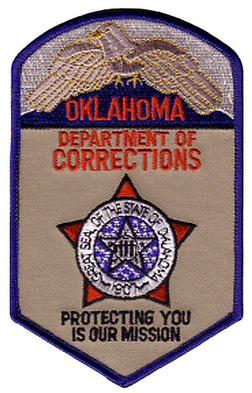
The New York City Department of Parks and Recreation, also called the Parks Department or NYC Parks, is the department of the government of New York City responsible for maintaining the city's parks system, preserving and maintaining the ecological diversity of the city's natural areas, and furnishing recreational opportunities for city's residents and visitors.

Security police usually describes a law enforcement agency which focuses primarily on providing security and law enforcement services to particular areas or specific properties. They may be employed by governmental, public, or private institutions. Security police are generally considered distinct from security guards as security police personnel typically hold some level of law enforcement authority. The exact powers held by security police vary widely between jurisdictions. Examples of these types of agencies include the United States' DoD Police and FBI Police, the Indian Central Industrial Security Force, and the British Civil Nuclear Constabulary.
Special police usually describes a police force or unit within a such an agency whose duties and responsibilities are significantly different from other forces in the same country or from other personnel within the same agency, although there is no consistent international definition. Generally, special police personnel hold some level of police powers; sometimes they hold the same powers and authority of other law enforcement officers within their jurisdiction, but at a minimum they will typically possess detainment and arrest authority. 'Special police' is also occasionally used when referring to an 'elite' law enforcement agency or unit, such as special weapons and tactics (SWAT) units or other similar paramilitary forces who have some level of police power. 'Special police' may also be used to describe individuals who are granted police powers incidental to their primary duties, such as welfare fraud investigators, certain security guards, child welfare investigators, and agricultural inspectors. Special police personnel may be armed or unarmed. DC are law enforcement

The Bureau of Diplomatic Security, commonly known as Diplomatic Security (DS), is the security branch of the United States Department of State. It conducts international investigations, threat analysis, cyber security, counterterrorism, and protection of people, property, and information. Its mission is to provide a safe and secure environment for officials to execute the foreign policy of the United States.

A law enforcement officer (LEO), or police officer or peace officer in North American English, is a public-sector or private-sector employee whose duties primarily involve the enforcement of laws, protecting life & property, keeping the peace, and other public safety related duties. Law enforcement officers are designated certain powers & authority by law to allow them to carry out their responsibilities.

A police academy, also known as a law enforcement training center, police college, or police university, is a training school for police cadets, designed to prepare them for the law enforcement agency they will be joining upon graduation, or to otherwise certify an individual as a law enforcement officer, typically a police officer.

The Colorado Rangers Law Enforcement Shared Reserve (CLER), known publicly as the Colorado Rangers, is a statewide police agency in the U.S. state of Colorado. It is a statewide law enforcement reserve of sworn POST-certified peace officers who serve as force multipliers, allowing Colorado law enforcement agencies to reduce costs and manpower through a shared force. It is the only such statewide police reserve force in the United States. The Colorado Rangers have existed in some capacity since Colorado Territory's formation in 1861, though the modern agency was formed in 2017 from the Colorado Mounted Rangers.

The Oklahoma Highway Patrol (OHP) is a major state law enforcement agency of the government of Oklahoma. A division of the Oklahoma Department of Public Safety, the OHP has traffic enforcement jurisdiction throughout the state. OHP was legislatively created on July 1, 1937, due to the growing problem of motor vehicle collisions, the expansion of highway systems, and the increase in criminal activities.

The Oklahoma Department of Public Safety (ODPS) is a department of the government of Oklahoma. Under the supervision of the Oklahoma Secretary of Public Safety, DPS provides for the safety of Oklahomans and the administration of justice in the state. DPS is responsible for statewide law enforcement, vehicle regulation, homeland security and such other duties as the Governor of Oklahoma may proscribe.

The Oklahoma State Bureau of Investigation (OSBI) is an independent state law enforcement agency of the government of Oklahoma. The OSBI assists the county sheriff offices and city police departments of the state, and is the primary investigative agency of the state government. OSBI works independent of the Oklahoma Department of Public Safety to investigate criminal law violations within the state at the request of statutory authorized requesters. The OSBI was created in 1925 during the term of Governor Martin E. Trapp.
In the U.S. state of Oregon, enforcement of local, state, and federal law on public university property is delegated to a number of security, public safety, and police agencies.

The Oklahoma State Department of Education is the state education agency of the State of Oklahoma charged with determining the policies and directing the administration and supervision of the public school system of Oklahoma. The State Board of Education, the governing body of the Department, is composed of the Oklahoma State Superintendent of Public Instruction and six members appointed by the Governor of Oklahoma with the approval of the Oklahoma Senate. The State Superintendent, in addition to serving as chair of the Board, serves as the chief executive officer of the Department and is elected by the voters of Oklahoma every four years.

Sheriffs In the United States are the chief of law enforcement officers of a county. Sheriffs are usually either elected by the populace or appointed by an elected body.

The Oklahoma Department of Corrections is an agency of the state of Oklahoma. DOC is responsible for the administration of the state prison system. It has its headquarters in Oklahoma City, across the street from the headquarters of the Oklahoma Department of Public Safety. The Board of Corrections are appointees: five members are appointed by the Governor; two members are appointed by the President Pro Tempore of the Senate; and two members are appointed by the Speaker of the house of Representatives. The board is responsible for setting the policies of the Department, approving the annual budget request, and working with the Director of Corrections on material matters of the agency. T. Hastings Siegfried is the current chairman of the board. The director, who serves at the pleasure of the governor, is the chief executive of the department. The current director of Corrections is Steven Harpe, who was appointed in October 2022.

The Oklahoma Department of Labor (ODOL) is an agency of the government of Oklahoma that is headed by the Oklahoma Labor Commissioner, a statewide elected position. ODOL is responsible for supervising the administration of all state laws relating to labor and workplace safety and gathers and publishes information about the workforce of Oklahoma.

A security guard is a person employed by a government or private party to protect the employing party's assets from a variety of hazards by enforcing preventative measures. Security guards do this by maintaining a high-visibility presence to deter illegal and inappropriate actions, looking for signs of crime or other hazards, taking action to minimize damage, and reporting any incidents to their clients and emergency services, as appropriate.

The Florida Department of Law Enforcement (FDLE) is a state-wide investigative law enforcement agency within the state of Florida. The department formally coordinates eight boards, councils, and commissions. FDLE's duties, responsibilities, and procedures are mandated through Chapter 943, Florida Statutes, and Chapter 11, Florida Administrative Code. FDLE is headed by a commissioner who reports to the Florida Cabinet, which is composed of the governor, the attorney general, the chief financial officer, and the commissioner of agriculture. The commissioner is appointed to his position by the governor and cabinet and confirmed by the Florida Senate.
The Oklahoma Tax Commission (OTC) is the Oklahoma state government agency that collects taxes and enforces the taxation and revenue laws of the state. The Commission is composed of three members appointed by the Governor of Oklahoma and confirmed by the Oklahoma Senate. The Commissioners are charged with oversight of the agency but appoint an Executive Director to serve as the chief administrative officer of the Commission and to oversee the general practices of the Commission.

The Bureau of Indian Affairs Police, Office of Justice Services, also known as BIA Police, is the law enforcement arm of the United States Bureau of Indian Affairs. The BIA's official mission is to "uphold the constitutional sovereignty of the Federally recognized Tribes and preserve peace within Indian country". It provides police, investigative, corrections, technical assistance, and court services across the over 567 registered Indian tribes and reservations, especially those lacking their own police force; additionally, it oversees tribal police organizations. BIA services are provided through the Office of Justice Services Division of Law Enforcement.

The Office of the Attorney General (OAG) is an agency of the Oklahoma state government that is headed by the Attorney General of Oklahoma. The OAG is responsible for supervising the administration of justice across the State, providing legal assistance to the State government, and prosecuting violators of State law.
















